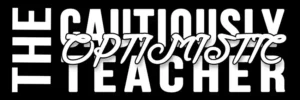To Kill a Mockingbird Unit Plan
Welcome to the To Kill a Mockingbird Differentiated Unit Plan, a comprehensive and interactive approach to exploring Harper Lee’s classic novel. This plan is meticulously crafted to cater to diverse learning styles, ensuring that each student can connect with the rich themes and historical context of the story. Through a variety of engaging activities, insightful analyses, and creative projects, students will delve into the world of Maycomb, Alabama, and gain a deeper understanding of the novel’s enduring significance. Whether through analytical discussions, kinesthetic role-playing, or visual representations, this unit plan offers a multifaceted experience that brings To Kill a Mockingbird to life for a new generation of learners.
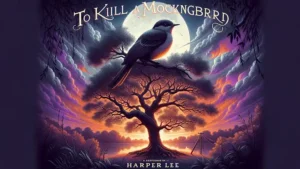
Introducing ‘To Kill a Mockingbird’ in the DI Classroom
Welcome to this interactive lesson plan designed to guide your students through Harper Lee’s classic novel, To Kill a Mockingbird. As an educator, you will find this resource invaluable as a differentiated lesson dealing with the novel’s rich historical backdrop and the significant impact of Lee’s life experiences on her

1930s and Jim Crow Era Visual Project for Students
As educators, we often strive to provide our students with a rich understanding of historical contexts, to enhance their comprehension of literature and foster a deeper appreciation of the past’s impact on the present. This lesson plan, designed for the exploration of the 1930s and the Jim Crow laws, aims
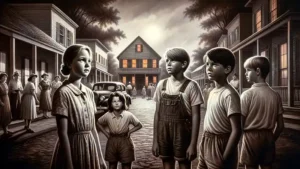
To Kill a Mockingbird Chapter 1: High School Lesson Plan
Today we will explore Chapter 1 of To Kill a Mockingbird in a unique, engaging manner. Today’s lesson is crafted to cater to diverse learning styles by offering different versions of the book, including a novel, audiobook, and graphic novel. Our process emphasizes active engagement with the text, as students
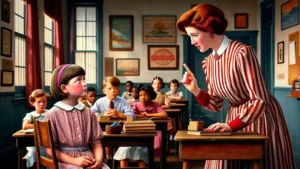
To Kill a Mockingbird Ch. 2: Scout & Harper Lee’s Insights
Chapter 2 of To Kill a Mockingbird is juxtaposed with Harper Lee’s personal reflections in a letter to Oprah Winfrey. The lesson is designed to engage students in a multifaceted exploration of literary devices, thematic parallels, and cultural understandings. Through reading and analyzing selected texts, students will gain deeper insights

To Kill a Mockingbird Chapter 3: Explore Socioeconomic Status
This lesson explores the complex socio-economic landscape of Maycomb as portrayed in Harper Lee’s “To Kill a Mockingbird,” focusing on chapter 3. Students will explore the concept of socio-economic status (SES), examining how factors like income, education, and occupation shape the lives and interactions of the novel’s characters, including the

To Kill a Mockingbird Chapter 4: Scout as Narrator and More
In this lesson plan, centered around Chapter 4 of Harper Lee’s To Kill a Mockingbird, we will develop a more comprehensive understanding of the novel’s intricate narrative and themes. Our focus will be on three key learning objectives: analyzing key events and decisions made by Jem and Scout, comparing the

To Kill a Mockingbird Chapter 5 Quotes Analysis Activity
The Chapter 5 activity for To Kill a Mockingbird is a tool for teachers to deepen students’ understanding and appreciation of Harper Lee’s classic. This hands-on approach encourages students to engage actively with the text through the use of chart paper, sticky notes, and the novel itself. As an educator,

To Kill a Mockingbird Chapter 6: Jem’s Diary Activity
In this engaging assignment, students will explore Chapter 6 of To Kill a Mockingbird through a creative diary-writing activity from Jem Finch’s perspective. The task focuses on developing a distinctive voice for Jem and delving into his experiences during this critical chapter. Students are expected to accurately identify key events,

To Kill a Mockingbird Chapter 7: Plot and Quote Writing
This activity focuses on Chapter 7 of “To Kill a Mockingbird” through an exploration of plot development and the skillful selection of quotations. The objective is for students to summarize the key events of this pivotal chapter and enhance their analytical skills by identifying and discussing two significant quotes. These

To Kill a Mockingbird Chapter 8: Universe of Obligation
In chapter 8 of To Kill a Mockingbird, we’ll explore concepts of community, cultural awareness, the empathy gap, and the universe of obligation. and moral responsibility in a deeply divided society. Our goal is to understand these concepts as they are presented in the book and reflect on how they
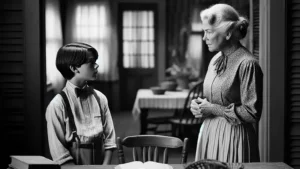
To Kill a Mockingbird Chapter 9: Family Attitudes
In Chapter 9 of To Kill a Mockingbird, students will focus on the distinct perspectives of Aunt Alexandra, Scout, and Atticus Finch regarding racial equality, gender equality, and family identity. Through this exercise, students will enhance their analytical reading skills, develop a deeper understanding of character development and thematic elements,

To Kill a Mockingbird Chapter 10: Symbolism Lesson Plan
This lesson plan is designed for Chapter 10 of To Kill a Mockingbird, with a focus on reviewing and understanding symbolism within this pivotal chapter of the novel. After a thorough reading and discussion of Chapter 10, students will have the opportunity to engage in a deeper exploration of the

To Kill a Mockingbird Chapter 11: Mrs. Dubose Analysis
This lesson plan, centered around Chapter 11 of “To Kill a Mockingbird,” is specifically crafted to delve into the intricacies of character analysis, with a primary focus on Mrs. Dubose. After a detailed reading and discussion of the chapter, students will embark on an in-depth exploration of Mrs. Dubose’s character,
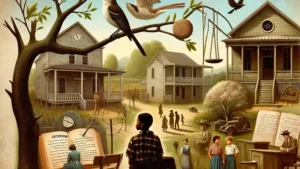
To Kill a Mockingbird Part 1 Quotes Analysis Lesson Plan
This lesson plan, focusing on Part I of To Kill a Mockingbird, is designed to enrich students’ understanding of the novel through a detailed examination of its significant quotes. After completing the first part of Harper Lee’s classic work, students are expected to engage in an analytical study of key
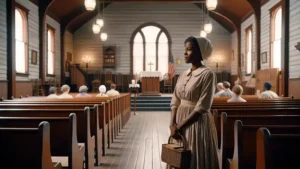
To Kill a Mockingbird Chapter 12 Memoir Comparative Analysis
This lesson plan, focusing on Chapter 12 of To Kill a Mockingbird and the memoir “You Worked Long Hours,” is designed to provide students with a rich comparative analysis of historical and fictional accounts of African American life in the early 20th century. Students will begin by reading and discussing

To Kill a Mockingbird Chapters 13-14: Personal Reflection
This lesson plan, focusing on Chapters 13 and 14 of Harper Lee’s To Kill a Mockingbird, is crafted to engage students in a reflective and analytical exploration of themes surrounding family, social norms, and personal growth. The session begins with a journaling exercise where students are prompted to introspect and
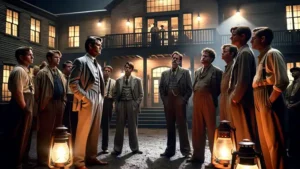
To Kill a Mockingbird Chapter 15: Lynching History
In this lesson on To Kill a Mockingbird Chapter 15 we will take a look at the historical narrative of lynching in America, offering a comprehensive exploration of the social and racial themes present in Harper Lee’s novel. By incorporating the educational video Origins of Lynching, students will gain a
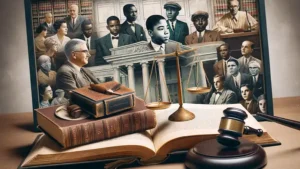
To Kill a Mockingbird Chapter 16 and the Scottsboro Boys
In this lesson plan, we look at the profound themes of justice, racial prejudice, and moral integrity, as explored in Chapter 16 of To Kill a Mockingbird, and the historically significant Scottsboro Boys case. This lesson aims to foster critical thinking and empathy in students by juxtaposing the fictional trial
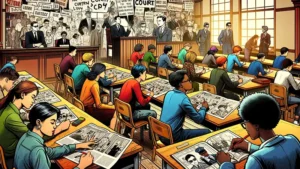
To Kill a Mockingbird Chapters 17-21 Comic Strip Lesson
In this engaging and thought-provoking lesson, students will embark on a creative journey through the pivotal courtroom scenes in chapters 17 – 21 of To Kill a Mockingbird. This lesson plan is designed to deepen students’ understanding of the novel’s complex themes, such as racial injustice, moral integrity, and the

To Kill a Mockingbird Chapter 22: Reactions to the Case
In this lesson, we will immerse ourselves in To Kill a Mockingbird Chapter 22. This chapter, rich in emotional depth and complexity, invites us to explore the aftermath of the trial and its profound impact on the characters and the community of Maycomb. As students navigate through the nuanced reactions

To Kill a Mockingbird Chapter 23 and The Trouble I’ve Seen
In this lesson, we delve into the interplay between literature and history, examining To Kill a Mockingbird Chapter 23 alongside the powerful documentary The Trouble I’ve Seen. This lesson is designed to provide a multifaceted understanding of racial injustice, both in the fictional setting of Maycomb and the real historical

To Kill a Mockingbird Chapter 24: Alexandra & Maudie
This lesson plan for To Kill a Mockingbird Chapter 24, students will engage in a partner-based task to write a dialogue between Alexandra and Miss Maudie following the news of Tom Robinson’s tragic death. This exercise aims to deepen students’ understanding of the novel’s characters, themes of justice and societal
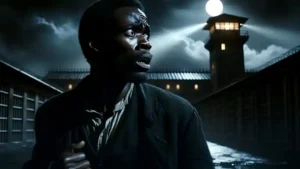
To Kill a Mockingbird Chapter 25: It’s a Sin and Reactions
In this short lesson for To Kill a Mockingbird Chapter 25, students will focus on the critical moments that reflect on the novel’s overarching themes of empathy, justice, and moral integrity. Through the analysis of specific questions related to this chapter, students will gain deeper insights into Atticus Finch’s wisdom,
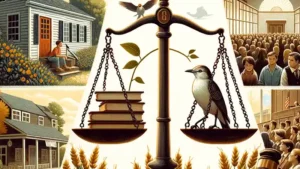
To Kill a Mockingbird Chapter 26: Welcome Back, Boo Radley
In To Kill a Mockingbird Chapter 26, Harper Lee revisits the enigmatic character of Boo Radley, intertwining his story with the aftermath of the Tom Robinson trial. This chapter serves as a pivotal moment for character development, particularly through Scout’s changing perceptions and the community’s complex moral landscape. This lesson

To Kill a Mockingbird Chapter 27: Unveiling Threats & Change
In To Kill a Mockingbird Chapter 27, Lee explores the aftermath of the Tom Robinson trial, revealing the lingering tensions and transformations within Maycomb. As Halloween approaches, the characters face new challenges that test their beliefs and resilience. This lesson will explore Aunt Alexandra’s concerns over Bob Ewell’s threats, Atticus’s

To Kill a Mockingbird Chapters 28-31: Mood and Morality
In this lesson, students will read through the pivotal moments of To Kill a Mockingbird Chapters 28 – 31, exploring the intricate dynamics of mood shifts, motivations behind characters’ actions, and differing perspectives on human nature. Through detailed examination and discussion, learners will gain insights into the thematic depth of

To Kill a Mockingbird Culminating Essay & Presentation
This is the culminating task for students who have completed reading To Kill a Mockingbird, a cornerstone of American literature that explores themes of racial injustice, moral growth, and compassion. The culminating activity will consist of two parts: an MLA formatted essay and a presentation. This activity aims to deepen
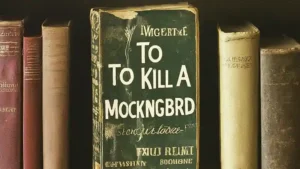
Why Differentiate TKAM? For Better Student Engagement!
Teaching for almost two decades brings a lot of changes and reflections. Some things get better, some… not as much. Like many teachers, I’ve been shifting towards a differentiated approach over the past few years. The traditional skill-and-drill had its place, but I felt like something was missing – a
